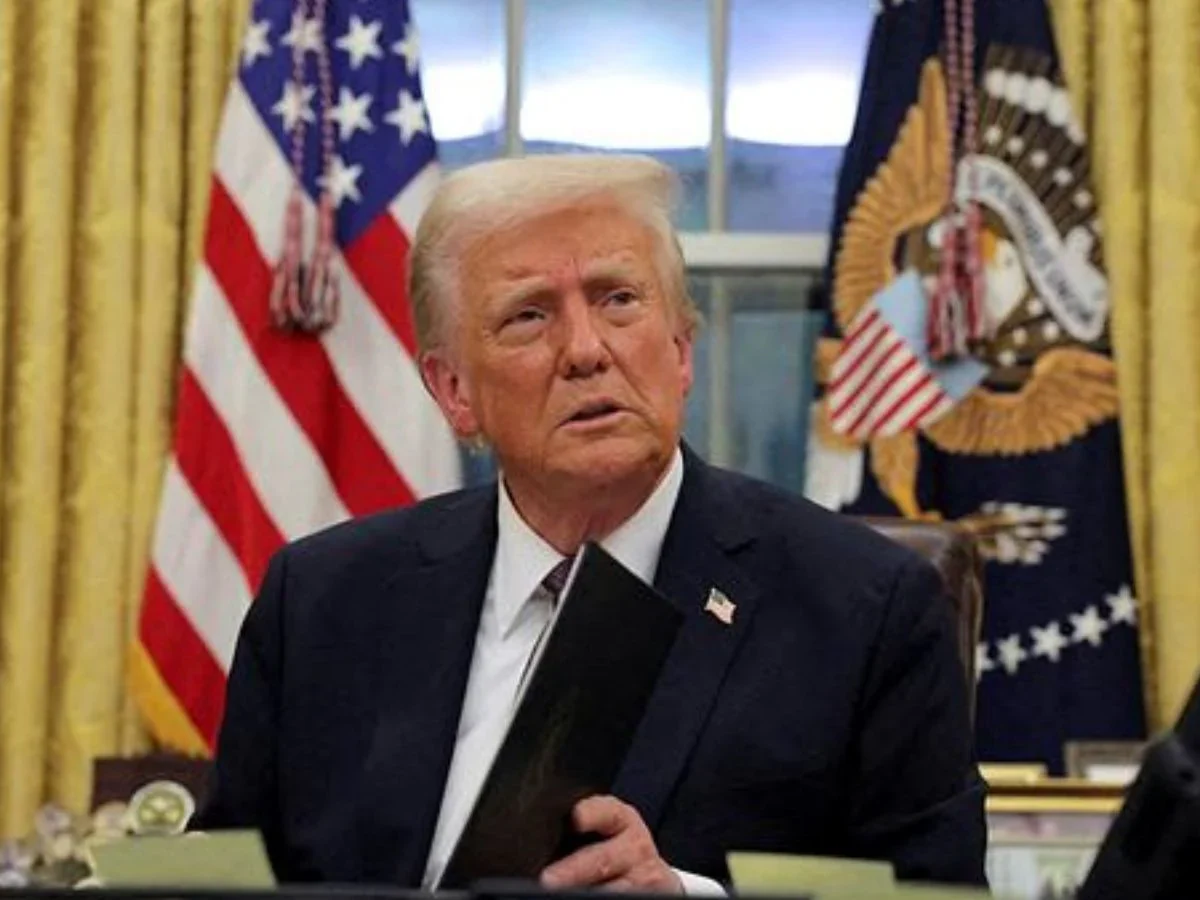President Donald Trump’s recent executive order aiming to end birthright citizenship has sparked significant legal challenges and nationwide debate. Multiple federal judges have issued injunctions blocking the order, citing constitutional concerns and potential violations of the 14th Amendment.
Understanding Birthright Citizenship
Birthright citizenship is the principle that grants U.S. citizenship to anyone born on American soil, regardless of their parents’ immigration status. This right is enshrined in the 14th Amendment of the U.S. Constitution, which states, “All persons born or naturalized in the United States, and subject to the jurisdiction thereof, are citizens of the United States.”
This policy has been a cornerstone of American identity since its adoption in 1868, ensuring that anyone born in the country is recognized as a citizen, with the same rights and protections as others.
Trump’s Executive Order
On January 20, 2025, President Trump signed an executive order titled “Protecting the Meaning and Value of American Citizenship.” The order seeks to redefine the 14th Amendment’s Citizenship Clause, aiming to deny citizenship to children born in the U.S. to non-citizen parents, including those legally present on temporary visas.
The administration argues that the current interpretation encourages unauthorized immigration and “birth tourism,” where pregnant women come to the U.S. solely to give birth and obtain citizenship for their children. Trump has long criticized birthright citizenship, and his latest order attempts to override existing legal interpretations through executive action.
Legal Challenges and Judicial Responses
The executive order has faced immediate legal opposition. Attorneys general from 22 states, along with civil rights organizations, have filed lawsuits challenging its constitutionality. They argue that the order violates the 14th Amendment and contradicts over a century of legal precedent.
Federal judges have responded by issuing preliminary injunctions to halt the order’s implementation:
- January 23, 2025: U.S. District Judge John C. Coughenour in Seattle temporarily blocked the order, calling it “blatantly unconstitutional.” He emphasized that the 14th Amendment guarantees citizenship to those born on U.S. soil, regardless of their parents’ status.
- February 5, 2025: U.S. District Judge Deborah Boardman in Maryland issued a nationwide preliminary injunction, stating that the order “conflicts with the plain language of the 14th Amendment” and is “likely to be found unconstitutional.”
- February 10, 2025: U.S. District Judge Joseph N. Laplante in New Hampshire became the third federal judge to block the order, reinforcing previous rulings and highlighting the order’s constitutional conflicts.
The repeated judicial blocks indicate that the courts view Trump’s order as an overreach of executive power, setting the stage for a prolonged legal battle.
Arguments For and Against the Order
Supporters of the executive order argue that the 14th Amendment’s phrase “subject to the jurisdiction thereof“ was not intended to grant citizenship to children of non-citizens or those in the country unlawfully. They claim that ending birthright citizenship would deter unauthorized immigration and prevent exploitation of U.S. citizenship laws.
Conservative legal scholars argue that Congress, not the courts, should decide the scope of birthright citizenship. Some point to the fact that most countries worldwide do not have automatic citizenship based solely on birthplace.
Opponents counter that the 14th Amendment clearly grants citizenship to anyone born on U.S. soil, with few exceptions (such as children of foreign diplomats). They warn that revoking birthright citizenship could create a large population of stateless individuals and undermine fundamental American values. Civil rights groups argue that the order targets immigrant communities unfairly and could lead to significant legal confusion.
Historical Context
The principle of birthright citizenship was established to overturn the Dred Scott v. Sandford decision of 1857, which denied citizenship to African Americans. The 14th Amendment was adopted in 1868 to ensure that all persons born in the U.S., especially former slaves, were granted citizenship.
The U.S. Supreme Court reaffirmed this interpretation in the 1898 case United States v. Wong Kim Ark, ruling that a child born in the U.S. to Chinese immigrant parents was a citizen under the 14th Amendment. This ruling has served as a key legal precedent for over a century.
Despite past attempts to challenge it, birthright citizenship has remained largely uncontested in modern history. However, Trump’s order has reignited the debate, making it one of the most controversial immigration policies in recent years.
Current Status and Future Implications
As legal battles continue, the executive order remains unenforceable due to the judicial injunctions. The Department of Justice has appealed these rulings, and the issue is expected to progress through the appellate courts, potentially reaching the Supreme Court.
If upheld, the executive order could fundamentally alter the understanding of citizenship in the United States, affecting millions of individuals, particularly children of non-citizen parents. It could also open the door for further restrictions on immigration and citizenship policies.
Conversely, if the courts strike it down, it would reaffirm the long-standing interpretation of the 14th Amendment and cement birthright citizenship as an unquestionable right in the U.S. Constitution.
What Comes Next?
The Supreme Court’s eventual decision will likely have lasting consequences. If the court agrees to hear the case, its ruling could set a precedent for future immigration and citizenship policies. With a conservative-leaning court, there is uncertainty about how they will interpret the 14th Amendment in this context.
Meanwhile, the issue remains a focal point of political debate. Republican lawmakers and conservative groups continue to push for legislative solutions, while Democrats and immigration advocates fight to preserve birthright citizenship.
As the legal and political battle unfolds, millions of families across the U.S. wait anxiously for a final decision that could reshape American citizenship for generations to come.
More Updates : USA Glory.a






